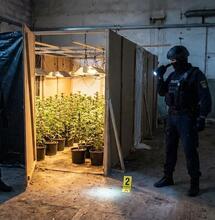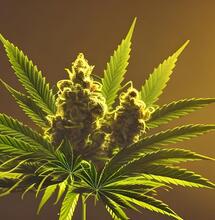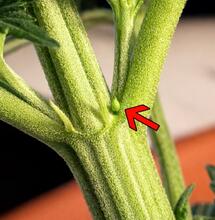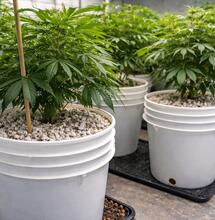Fines? What Are the Consequences?

The worst thing about Cannabis being "illegal" is getting caught with it and earning a fine. Earlier this month however, President Biden announced a mass pardon for all those with federal convictions for the "simple possession" of Cannabis. He also urged governors to follow suit for equivalent state-level offenses.
The White House made a significant shift in rhetoric regarding penalties. While we will have to wait a little longer for de-scheduling or re-scheduling, senior officials from Biden's administration were clear that anyone who has committed an offense of simple possession "could not be prosecuted federally" any longer. The proclamation is valid from the day it was communicated to the public, Oct. 6, 2022.
"Too many lives have been upended because of our failed approach to marijuana. It's time that we right those wrongs," said the president in a statement.
Nevertheless, the president further emphasized that other regulation remains in place. "Even as federal and state regulation of marijuana changes, important limitations on trafficking, marketing, and under-age sales should stay in place," he said.
Each state in the U.S. has its own laws about Cannabis. Some are more liberal and some are more restrictive. There are states that allow only the medicinal use of Cannabis. Others are open to recreational use and growing, too. Breaking the rules may result in fines and penalties written in the state law.
The simple possession offense that Biden has scrapped may take some time before state governors implement it. They have been instructed to do so by the president. Simple possession may refer to any amount. Distribution of a small amount of weed for no remuneration has also been treated as a possession.
A first offense for possession under federal law has until now been treated as a misdemeanor, punishable with up to a year in prison in the worst case and payment of $1,000.
The federal law that penalizes Cannabis sales, cultivation, manufacture, and distribution is much harsher than that, however. It is this law that remains in place and supersedes the law of any legal state. Below is a quick overview of the fines and other legal consequences associated with it.
Federal Penalties for Sale
Federal law classifies marijuana sales as a felony.
- Less than 50 kg may result in up to 5 years in prison and a fine of $250,000.
- Between 50 and 90 kg may result in up to 20 years in prison and a fine of $1,000,000.
- Between 100 and 999 kg may result in at least five years in jail and max of 40 years, and a $500,000 fine.
- For 1000kg or more, it means at least ten years in prison or life imprisonment and $1,000,000.
Caught selling to a minor or within 1000 ft of a school facility or other specified areas carries a double penalty.
Federal Penalties for Cultivation
Cultivation also amounts to a felony in federal legal terms.
- Less than 50 plants is punishable with up to 5 years in prison and a $250,000 fine.
- Between 55 and 99 plants is punishable with up to 20 years in prison and $1,000,000.
- Between 100 and 999 plants, it's between five and 40 years in prison and payment of $500,000.
- One thousand plants or more may ruin your life with a life in prison, a minimum of 10 years, and a fine of $1,000,000.
Manufacture and Distribution Penalties
- Manufacturing or distributing less than 50 plants or 50 kg of weed is punishable with up to five years in jail and a fine of up to $250,000.
- Between 50 and 99 plants or kilos, the penalty is not more than 20 years in prison and a fine of up to $1 million for individuals or $5 million for illegal organizations for the first offense.
- Between 100 and 999 plants or kilos, the penalty increases to a max of 40 years in prison and a fine of $2-$5 million.
- For over 1000 plants or 1000 kilograms, the penalty is a minimum of 10 years in prison, potential life imprisonment, and a fine of $4-$10 million.
For weed distribution to a minor under the age of 21, the penalties can be doubled. Distribution within 1,000 ft of a school, playground, or public housing, or within 100 feet of amenities such as public pools, video arcades, or youth centers also doubles the possible penalties.















